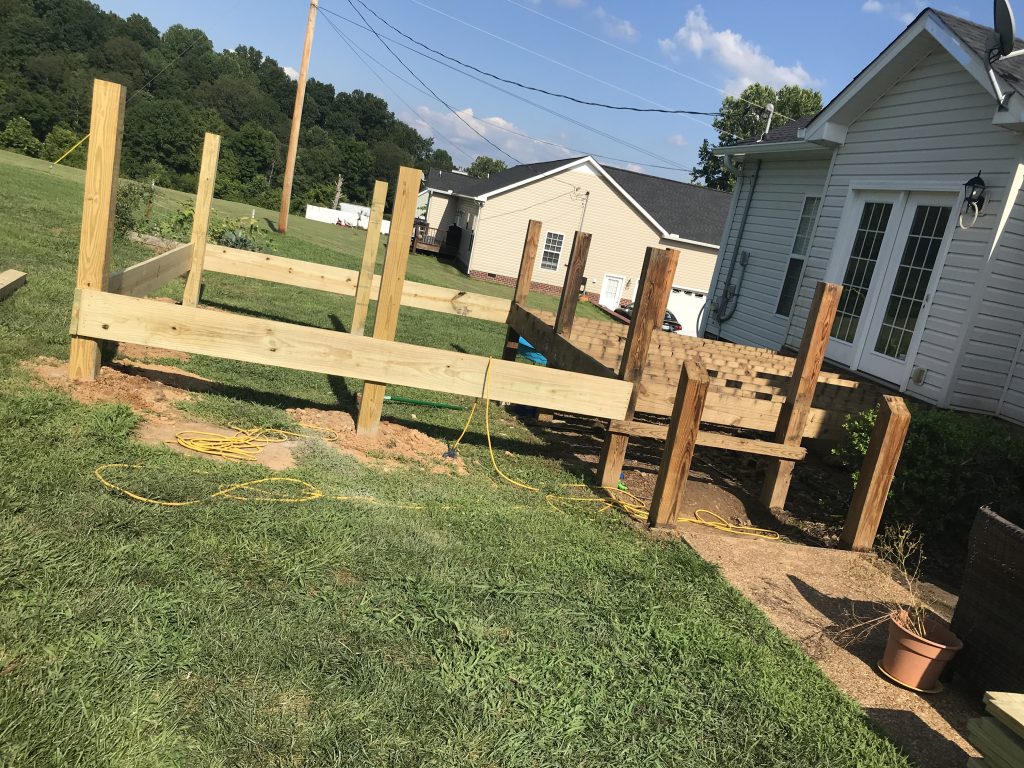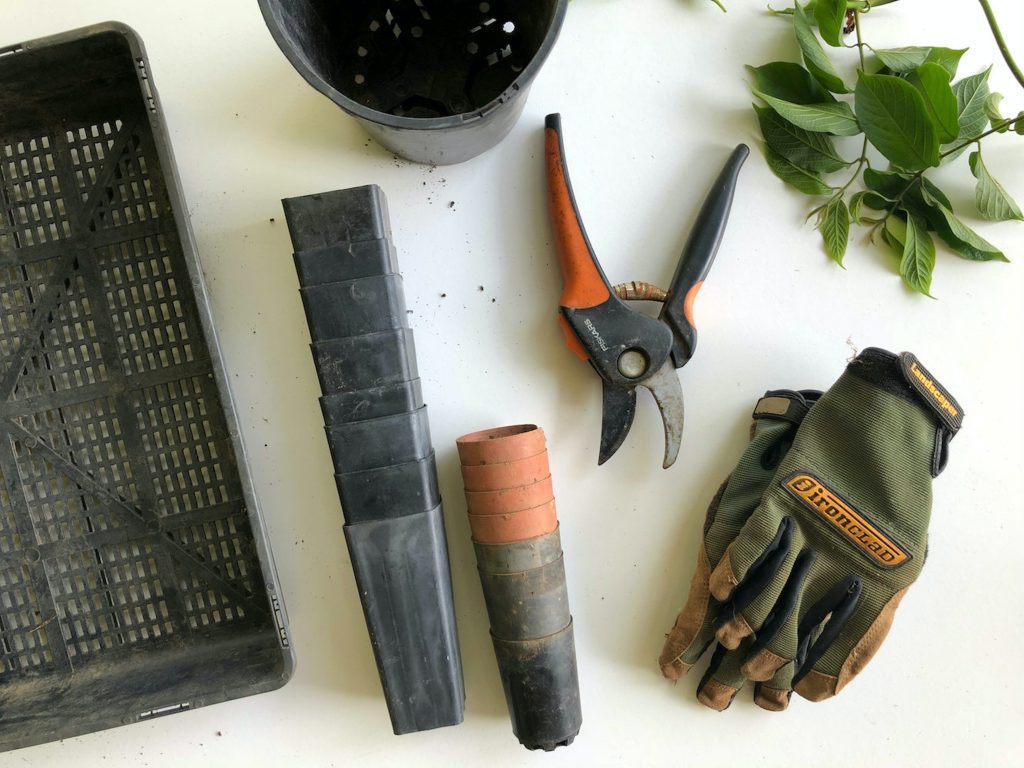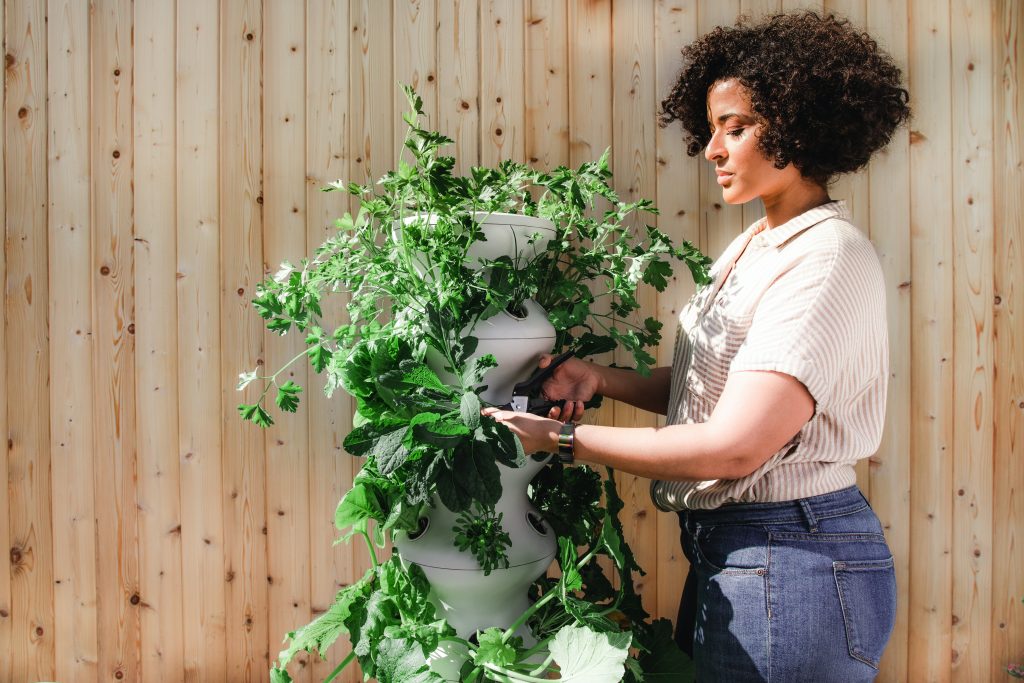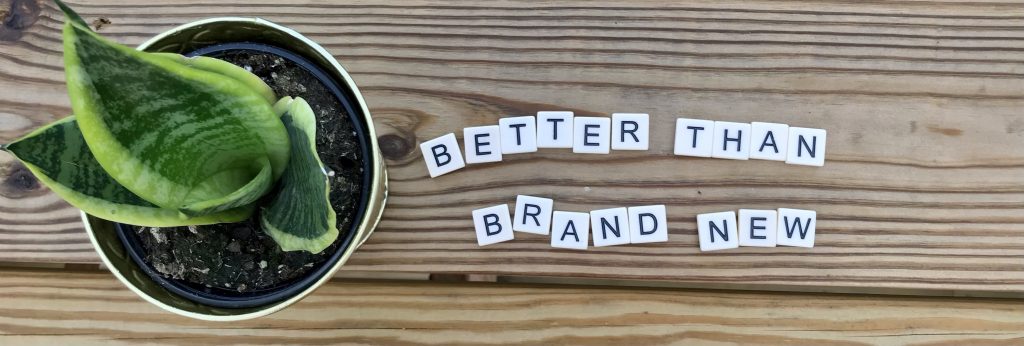I don’t want to be brand new. I want to be better than brand new.
For the last few years, two boards on my deck have become increasingly squishy and rotten. They didn’t look rotten. so I hid their status as long as I could by moving deck furniture to sit over them without sitting weight on them. Further, several rails reached the “purely for cosmetic”-state. My four year old may or may not have used the rails as doors to climb out to the outer ledge on more than one occasion. It became clear our deck was not safe.
Since we didn’t love the size of our deck, we decided that instead of repairing a few spots, it was time to make some serious changes. We decided to double the size of our deck.

Out with the Old
Before the new deck could be built, we had to tear out the old rotten boards and busted railing. Tearing down was not as exciting as a building — okay maybe our 4-year-old really loved knocking railing off. We were able to save and reuse some of the “bones” of our old deck to rebuild over. The posts were firmly set in a concrete foundation, and the framing was solid, even if the top boards were worn. The view from my back window got quite ugly before it got any better.
The process took longer than we predicted. Parts were delayed and lumber ran out. Rain forced the men building to seek other tasks temporarily. We were so impatient that we would go sit on the end when the new part was only partially constructed, but the torn away boards also allowed us to see some trash and debris that had collected unseen under our deck. We picked the trash up before the new boards covered it, leaving it forgotten.
Have you realized yet, that as I talk about my deck, I’m talking about our souls?
I am the true vine.
As I watched the old clear out to make room for the new deck, I couldn’t help but think of Jesus doing the same with us. He tells us about the process of cutting away the dead in our lives with the goal that we produce more fruit:
“I am the true vine, and my Father is the vinedresser. 2 Every branch in me that does not bear fruit he takes away, and every branch that does bear fruit he prunes, that it may bear more fruit. 3 Already you are clean because of the word that I have spoken to you. 4 Abide in me, and I in you. As the branch cannot bear fruit by itself, unless it abides in the vine, neither can you, unless you abide in me. 5 I am the vine; you are the branches. Whoever abides in me and I in him, he it is that bears much fruit, for apart from me you can do nothing. 6 If anyone does not abide in me he is thrown away like a branch and withers; and the branches are gathered, thrown into the fire, and burned. 7 If you abide in me, and my words abide in you, ask whatever you wish, and it will be done for you. 8 By this my Father is glorified, that you bear much fruit and so prove to be my disciples. 9 As the Father has loved me, so have I loved you. Abide in my love. 10 If you keep my commandments, you will abide in my love, just as I have kept my Father’s commandments and abide in his love. 11 These things I have spoken to you, that my joy may be in you, and that your joy may be full.
John 15:1-11 (ESV)

Pruning
I’m not very good at following instructions, especially when I think I know better. As a farmgirl, I know a thing or two about planting and harvesting. So when we planted our first garden a few years back, I thought I knew what I was doing. The instructions said to plant several seeds into a mound. Once the seed sprouted, I was to pinch off all but one, allowing only the best one to continue growing. I didn’t like this. Less vines = less fruit… or so I thought. I’m sure you are shocked to learn I was wrong. Pinching off the other vines allow the strongest plants to produce more fruit, as their needed nutrients, sunlight, space, and water aren’t shared.
A gardener or vinedresser prunes a plant or vine by intentionally cutting away dead or weaker parts to direct the plant’s limited energy into new growth and fruit. Sometimes this means clipping branches, shoots, or flowers. The parts cut away aren’t always “bad” but they hold the plant back from its best.
The Intentional Vinedresser
The first thing Jesus does is tell us that he is the vine and God the Father is the vinedresser. Not only is this comforting for us Trinitarians, but it reveals some things about the Father’s character. When God prunes us, it is first, intentional and second, for our good.
The Vinedresser chooses each cut and clip. He prunes considerating what is best. It’s not a helter-skelter plucking of leaves and vines. The Vinedresser knows that plant and its needs. The Father knows his children and their needs. He acts deliberately in our lives and with the full understanding of what is best for us. The Vinedresser WANTS the vine to produce fruit, and calculates his actions to achieve that goal. He is not going to “hurt” the vine just for fun. God gets no pleasure in our pain. He carefully cuts away what holds us back from being what he knows is our best.

The Vine
This passage is clear that not every plant is part of the vine. Stay with me. Scripture is clear that not every person who believes that she is a Christian is actually a Christian:
On that day many will say to me, ‘Lord, Lord, did we not prophesy in your name, and cast out demons in your name, and do many mighty works in your name?’ 23 And then will I declare to them, ‘I never knew you; depart from me, you workers of lawlessness.’
Matthew 7:22-23 ESV
When someone told me that there were people walking around deceived, thinking that they were Christians, I thought he was crazy. Go back and read the verse in Matthew. Those speaking to Jesus think that they are part of the vine, but he is clear that they are not. In another plant-related reference a few chapters later, Jesus reaffirms “…Every plant that my heavenly Father has not planted will be rooted up.” (Matthew 15:13b). In this verse, he is speaking about religious leaders,
Don’t despair. The state of your soul is not an unknowable thing. The book of 1 John tells us “These things I have written to you who believe in the name of the Son of God, that you may know that you have eternal life, and that you may continue to believe in the name of the Son of God.” (1 John 5:13) This letter in the Bible gives us “if”-statements that help settle our hearts, and they are worth asking yourself.
Joy
These things I have spoken to you, that my joy may be in you, and that your joy may be full.
John 15:11
We don’t always get a why. In fact, we don’t even usually get a why. Here, we do. God even tells us why he is telling us: so that we may have joy. And not just any joy: his joy. Pruning is going to be painful. If you are anything like me, you don’t always LOVE change, especially when you think that part of your life is going FINE. Sometimes fine isn’t God’s best, and he loves us too much to settle for less than his best. So he will pluck off the dead parts, and cut away the things holding us back from His plan for us. We can have joy knowing that we aren’t buffeted by chance, we are pruned by our longing Father. Every cut is chosen with the intent for growth and supreme knowledge.

When we looked at the needed repairs on our deck, we could have chosen to fix the damaged parts “good as new.” We didn’t because we wanted better. When God clears the old out of our life, he does not replace it with the same humanity. He replaces it with his life, his heart, his joy.
And that is better than brand new.
Truthfully Yours,
DB
Great illustration, Dani! I also love that you tied in Matthew 7:22-23. These verses were always a little alarming to me until I noted that the “workers of lawlessness” were referencing their works as justification. They were abiding under the law (even though they were doing it in “His name”) rather than under the blood of Christ. We cannot bear fruit (or keep the law) on our own–praise the Lord for making a way for us!!
I love your insights each week!